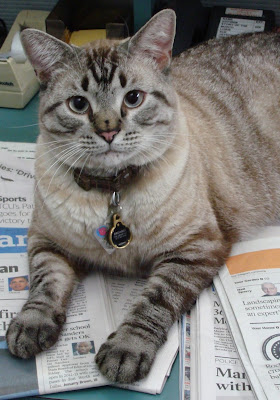It is difficult to read Atef Abu Saif’s The Drone Eats with Me: A Gaza Diary and simultaneously keep
oneself divorced from the politics that caused the situation to happen in the
first place. But that is exactly what
Saif, who hardly addresses the cause of the 2014 war that Israel waged in the
Gaza Strip, asks his readers to do. Doing
so allows the fifty-one days of war he describes in his 2014 diary to be experienced
strictly through the eyes of those helplessly caught up in the middle of it all
with no place to hide. And that makes The Drone Eats with Me a very effective
war memoir.
(But for the sake of context, here are some basic facts as I
understand them. In July of 2014, three
Israeli teenagers were kidnapped to Gaza by Hamas and brutally murdered there. Then,
in response to the Hamas rocket attacks that followed Israeli airstrikes, all-out
war began. Fifty-one days later, over
2,000 people were dead – about 1,500 of them civilians – and over 17,000 homes had
been destroyed.)
 |
| Atef Abu Saif |
Atef Abu Saif, a respected Arab author of five novels, was
born in the Jabalia Refugee Camp in the Gaza Strip in 1973. In 2014, when the fighting erupted, he lived in
Gaza with his wife, two young sons, and baby daughter. For the duration of the fighting he, and
every other citizen of Gaza, only had to look out their windows to judge how
the war was going from one day to the next.
But as Saif makes clear in his daily diary entries, that was not the
same as understanding why particular buildings and houses became targets of
Israeli drone, tank, or naval rockets and others did not. Without that knowledge, civilians were forced
to admit to themselves that no safe structure existed anywhere in the Gaza
Strip – and that sheer chance was going to determine if they and their families
would survive one more day or not.
Amidst all the chaos and death, however, Saif and his fellow
citizens show a remarkable durability and a determination to live life as close
to normal as possible. They settle into daily routines that give their lives
some semblance of structure despite what is happening around them. But it is still war, and it is still
unpredictable. Toward the end of the
fighting (although he did not know how close the end was when he made the
entry), Saif said:
“You
need a little luck to get you through war.
All wars are unpredictable. You
have to learn to live with that unpredictability, subject yourself to its
mechanisms, get a feel for it. But on
top of this you also need luck. The dead
are not military personnel…Most of them are your fellow citizens…You have not
made it this far because you are smarter than them or because you took the
right precautions.”
There are no good wars, and with The Drone Easts with Me, Atef Abu Saif reminds us of the utter
horror of being trapped inside one with no place to hide.
(Review Copy provided by Publisher)











